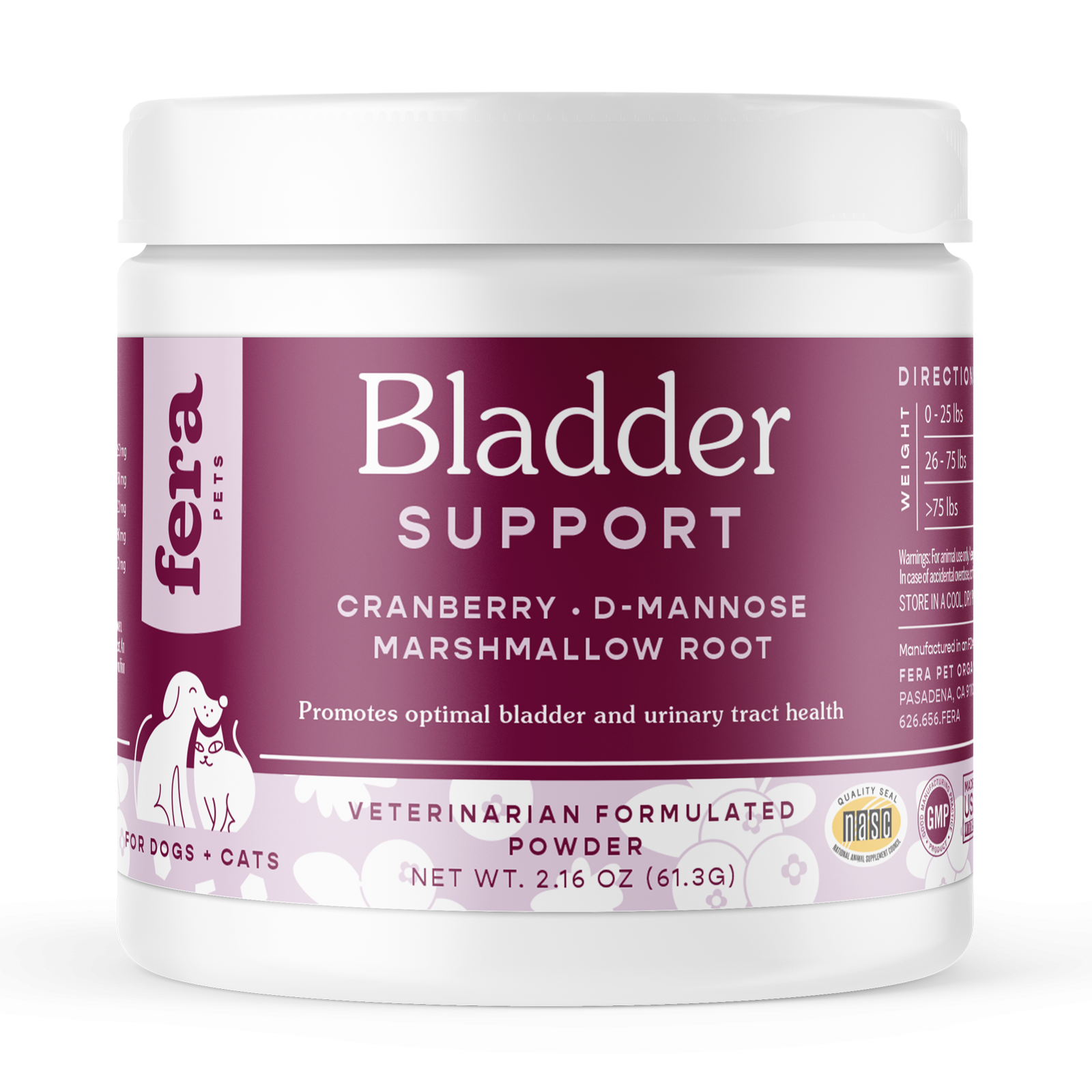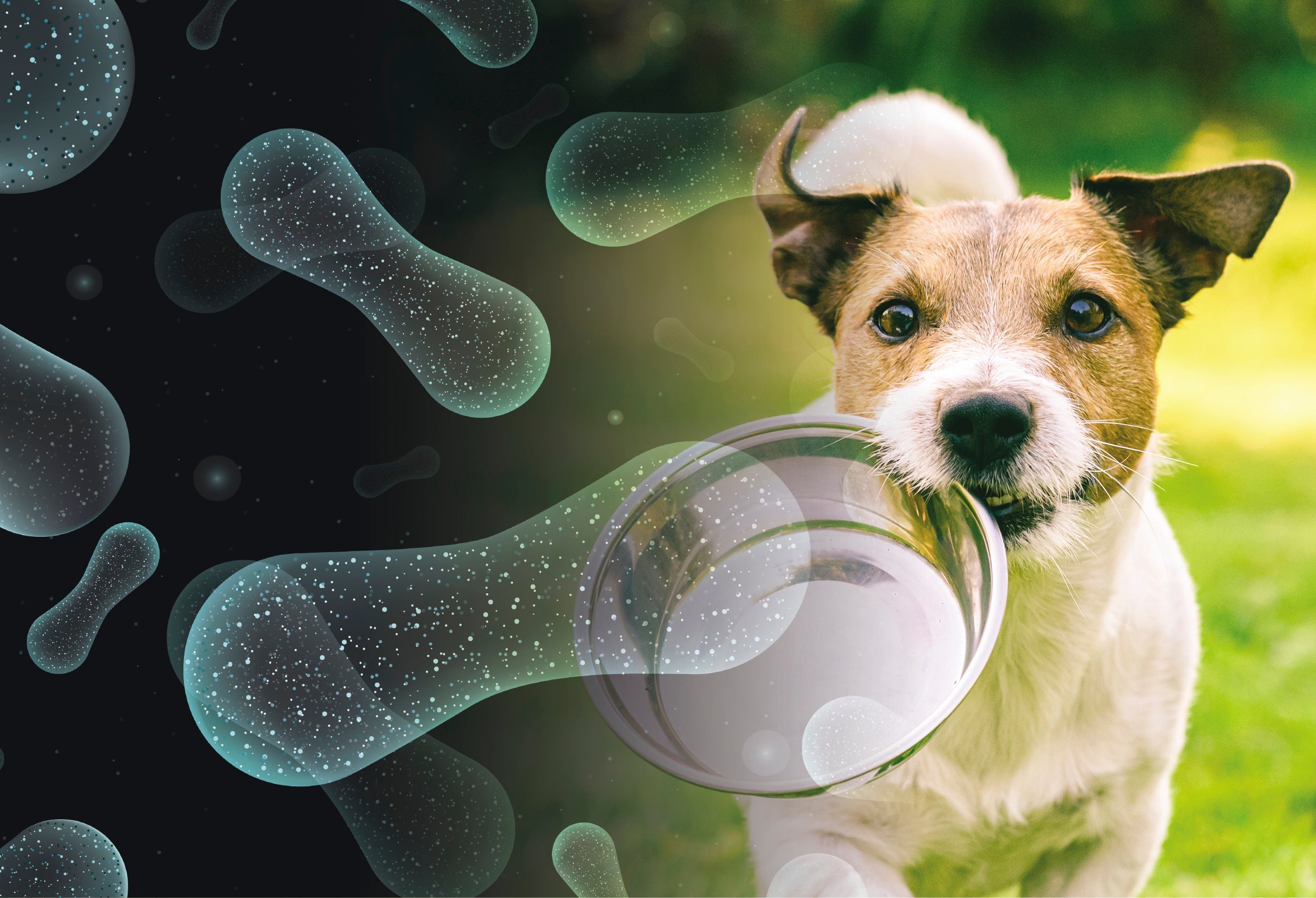Signs of a UTI in Dogs and How You Can Help
Is your furry friend showing signs of distress, frequent urination, or blood in their urine? Don't wait – their discomfort could be a sign of a UTI! Just like humans, dogs are prone to these painful infections. Catch it early and your fur baby will be back to their happy, energetic self in no time. Learn to recognize the common symptoms, potential causes, and treatments in our informative blog post!
If you’ve struggled with a urinary tract infection (UTI) before, you know how uncomfortable and potentially dangerous they can be. Unfortunately for our four-legged friends, they’re just as common in dogs as they are in humans.
Canines of all breeds are susceptible to the bothersome bladder infection, and it’s important to spot the symptoms of a UTI and get it treated before further health issues arise.
Do you suspect that your fur baby has a bladder infection? Here are some of the most common signs of a UTI in dogs, what causes them, and how you can help them feel better soon.
Dog UTI Causes
A UTI is an infection of the urinary tract in both humans and animals. These infections are mostly bacterial and caused when microorganisms, commonly E. coli, find their way into the urethra, where they upset the normal pH balance.
UTIs are a somewhat common diagnosis in my veterinary practice. While both male and female dogs can get a UTI, females tend to be more prone to the infections. Older dogs and pets with diabetes, kidney stones, Cushing’s disease, and chronic kidney disease are also more susceptible to UTIs.
Up to 27% of dogs will experience a UTI at least once in their lifetime, so if you’re worried that it will severely affect your dog’s health, you don’t need to worry too much.
As long as you recognize the symptoms and seek treatment immediately, your friend will be back to their usual and happy self in no time.

Common Signs of a UTI in Dogs
Some dogs will show signs of a UTI right away while others will have much more subtle symptoms. Here are some of the most common to be aware of.
- Urinating in the house. If your housebroken pet suddenly starts using the kitchen floor as a bathroom, something could be wrong!
- Cloudy and strong-smelling urine. If you notice a strange smell after your dog urinates, you may want to make an appointment with your veterinarian immediately.
- Blood in the urine. This is one of the most telling and unsettling signs of a UTI in dogs. Be sure to check the urine for blood if you suspect your furry friend has an infection.
- More frequent bathroom breaks with reduced quantity of urine. If you’ve ever had the displeasure of a bladder infection, you know exactly what I mean.
- Straining, whining, or whimpering while urinating. Using the bathroom can be painful for your poor friend when they have a UTI.
- Constant licking of the genital area.
- Increased thirst.
- Depleted energy or fever.
If you notice one or more of these signs, don’t wait to schedule an appointment with your veterinarian. If left untreated, a UTI can be a catalyst for a variety of more serious problems including kidney infection or failure, blood poisoning (sepsis), and bladder stones.
Dog UTI Diagnosis and Treatment
When my patients come to me with UTI symptoms, there are many ways I’ll get them on the road to recovery.
One of the first things I’ll do is ask the pet parent about the dog’s drinking habits, diet, and any other clinical signs they may have noticed in recent days. This gives me a good idea of their pet’s daily habits and what may have caused a UTI.
Then I’ll perform a physical exam that includes feeling the dog’s bladder from the outside. This will also help me determine if any additional issues should be addressed.
One of the best ways to detect a UTI is through a urine culture test. If you’re unable to collect a urine sample before your vet appointment, that’s ok! They’ll take one during your visit by inserting a small needle directly into the bladder.
This might sound extremely unpleasant for your dog, but it’s done very quickly and more often than not, they’ll hardly feel a thing.
Once the sample has been collected, it will sit in an incubator so any present bacteria will grow. Then your doctor will be able to identify exactly which organisms are making themselves at home in your dog’s bladder. It can also reveal:
- Whether there are urine crystals present.
- Signs of glucose, which indicates diabetes.
- Any bladder parasites.

Dog UTI Treatment
How I decide to treat my patients’ UTIs depends on the severity of the infections.
For typical cases, a simple antibiotic should do the trick! Your veterinarian will be able to prescribe an antibiotic that is specifically formulated to treat the bacteria discovered in your dog’s urine culture test.
If the case has progressed to a more severe state, additional tests may be required to determine whether treatments such as bladder stone removal or a diet change are necessary.
Antimicrobial agents may also be prescribed. These treatments usually last three to six weeks and are very effective.
When you’ve returned home, make sure your dog is drinking plenty of water to flush that pesty bacteria from their bladder.
Preventing UTIs in Dogs
Talk to your veterinarian about the best ways to prevent a UTI moving forward. Here are some great tips I give to my patients’ owners to help you get started.
- Take your dog out for regular potty breaks. Holding their urine in for too long can quickly lead to a UTI infection.
- Provide fresh drinking water each day. The quality of your pets’ water is very important when it comes to flushing bacteria out of their system.
- Feed a healthy diet. A well-balanced diet is essential to the prevention of UTIs and many other canine health problems.
- Routine grooming and bathing. Pay special attention to the skin and fur around the urethra opening if you want to prevent infections.
- Bladder support supplements. Not only do supplements minimize the chance of developing a UTI, but they can also support a normal urine pH and enhance the immune system. Look for helpful bladder-supporting ingredients including cranberry, d-mannose, and marshmallow root.
Naturally Support Your Pet’s Health
Unlock your pet's health potential with insights from industry expert veterinarian Dr. Michelle Dulake, who combines her vast knowledge and experience to create a thriving, happy life for your furry companion.
"My pets are like family to me. That’s why I co-founded Fera Pet Organics with the goal to create healthy, natural, and delicious supplements that help even more pets live longer, happier lives. "





